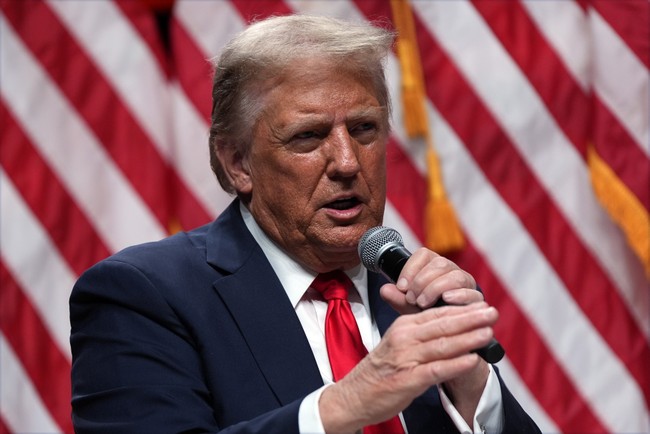Trump's Stance on H-1B Visas Sparks Debate
The discussion surrounding H-1B visas reveals stark divisions within political circles as key figures, including President-elect Trump and Elon Musk, voice their positions on immigration policies.
Published December 30, 2024 - 00:12am

Image recovered from townhall.com
The subject of H-1B visas has once again taken center stage in American political discourse as President-elect Donald Trump outlines his stance, a departure from his previous hard-line approach. During his first term, Trump prioritized the 'America First' policy, implementing stricter measures on the visa program to prioritize American workers. However, in a recent interaction with the New York Post, Trump expressed his support for the H-1B program, which facilitates the employment of foreign workers in specialty occupations. His support aligns with the views of prominent figures in the tech industry, such as Elon Musk and Vivek Ramaswamy, who argue the necessity of the program in accessing scarce highly-skilled labor within the U.S. workforce.
While proponents consider the H-1B visas vital for maintaining the technological edge of companies like SpaceX and Tesla, the program is not without its critics. Detractors argue that it prioritizes foreign workers at the expense of U.S. citizens, leading to job displacement. Reports indicate that the U.S. holds around 650,000 H-1B workers at any given time, fueling the argument that U.S. citizens are forced to cede their positions and, at times, train their replacements.
The tensions over immigration within Trump's political base have been heightened by this discourse. Elon Musk, who has historically benefited from H-1B visas, passionately defends the program on social media. Musk has stated that the visa program is crucial to his success in America and to numerous companies that bolster the nation's strength. His defensive stance was echoed by Ramaswamy, who criticized American culture for venerating mediocrity over excellence.
In West Palm Beach, Florida, a heated debate amongst Trump's coalition reveals the splintered factions regarding immigration and the tech industry. The technology moguls, who once opposed him, are now engaging with Trump's movement, creating an unusual blend of tech enthusiasm and political conservatism. However, concerns persist among Trump's long-time supporters who are wary of tech industry influence on immigration policy. Activists like Laura Loomer have expressed their discontent with Trump's decision to appoint Sriram Krishnan, a vocal supporter of increasing skilled immigration, to a key advisory position.
Stephen Miller, a well-known figure for his staunch anti-immigration views, remains a central figure in representing traditional Trumpist immigration policies. Conversely, Trump's evolving stance on providing green cards to foreign graduates reflects a nuanced approach that softens some of the previously hard-lined perspectives, potentially influenced by his close association with influential figures in the tech industry.
The discord underscores a larger ideological debate about America's identity and its market needs. Some believe that maintaining rigid controls over immigration compromises America's competitive edge, while others argue that a burgeoning reliance on foreign talent undermines homegrown opportunities and economic security for American workers. The divide within Trump's base illustrates the broader national conversation on balancing economic imperatives with cultural and social perspectives.
Globally, the debate holds implications for international relations, particularly with nations that supply a significant portion of H-1B visa applicants, such as India. As the narrative unfolds, it highlights the profound impact of immigration policy not only on domestic policy but also on international economic partnerships.
As Trump prepares for his potential return to the White House, the course he chooses regarding H-1B visas will likely remain a polarizing issue that could shape the future of American labor and immigration policy.







